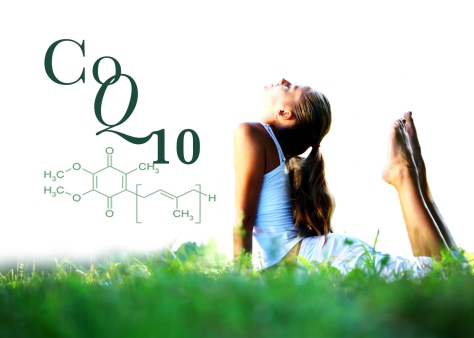Part Two – Crowded Shelves, Empty Pockets and CoQ10

In our last blog post, I highlighted that there are over 29,000 different natural health products available for today’s consumer; that’s approximately 17,000 more products than IKEA offers to its on-line customers. And unless you’re Bill Gates, swallowing a monthly buffet of supplements will quickly send your bank account plummeting into the red. This then begs the question — how does one choose among the plethora of pills?
The simple answer is there is no single answer. What pills to pop, powders to mix, and drops to drop will vary greatly from individual to individual, but there are a couple of supplements that everyone should consider taking; one of those products is CoEnzyme Q10, or Q10.
The Triple-Threat-Fighting Supplement: Life Saving, Anti-Ageing, and Energy Increasing
The human body is made up of trillions of cells, and Q10 – a powerful antioxidant – is found in the cellular membrane of nearly all of these trillions of cells.
Cars require gas and electricity to function, while cells require adenosine triphosphate (ATP). Without the help of Q10, ATP would be impossible, making it sine qua non, or “essential” – meaning Q10 is essential for maintaining life.
Aside from helping to power human cells, CoQ10 also helps to support a healthy immune system by scavenging for free radicals, decreasing oxidative stress, increasing antioxidant enzyme activity, and helping to facilitate normal cell division, cell growth, and cell regeneration.
The U.S. National Cancer Institute (NCI) highlights that CoQ10 can help the body “resist certain infections” and “protect cells from damage that could lead to cancer.” [emphasis added] It’s not just diseases that Q10 protects you from – the NCI also highlights that CoQ10 may help to “protect the heart from the damaging side effects of doxorubicin [a type of chemotherapy drug] used to treat cancer.”
Q10 is highly concentrated in our bodily organs, such as the liver, kidney, and pancreas, with the greatest concentration – two times more than any bodily organ – found in the heart. Thus, it’s no surprise that the hallmark of Q10 is its ability to maintain and support the cardiovascular system.
In 2013, Q10 rose to a new level of recognition when researchers presented their clinical trial results – which included 420 randomized people across 17 centres and eight countries – to the European Society of Cardiology conference.
Highlighting their findings, The Daily Mail writes, “Coenzyme Q10 is first drug shown to reduce heart failure deaths in a decade.” Science Daily’s summary includes, “Coenzyme Q10 decreases all cause mortality by half,” and that according to experts Q10 “should be added to standard treatment.”
The European study has only reinforced what scientists have known for decades – that Q10 is a prerequisite for a healthy heart.
The University of Maryland Medical Center reports that, “One clinical study found that people who took daily CoQ10 supplements within 3 days of a heart attack were less likely to have subsequent heart attacks and chest pain. They were also less likely to die of heart disease than those who did not take the supplements.”
Studies have shown that Q10’s heart benefits are far-reaching, helping people that are suffering from a wide range of heat conditions, including angina, arrhythmias, cardiomyopathy, congestive heart failure, and mitral valve prolapse.
It’s not just the heart, though, that benefits from healthy levels of Q10. Lower levels of this all-important antioxidant have been associated with people suffering from Parkinson’s disease, mental fatigue, obesity, periodontal disease, pre-mature ageing, myalgic encephalomyelitis, certain muscular diseases, amyotrophic lateral sclerosis, and inflammation leading to high blood pressure and high cholesterol.
There is a problem, however; from our early twenties and onward, the natural levels of CoQ10 in our bodies begins to diminish progressively, weakening our immune system and increasing our susceptibility to a wide range of illness, disease, and premature ageing. This is a well-established fact, yet in a perplexing move, the American Heart Association (AMA) and the American College of Cardiology, in November of 2013, issued new eligibility guidelines for cholesterol-lowering statin drugs. Under their recommended changes, nearly 13 million more people in the US – most of which are aged sixty or older – will now be eligible for statin drugs. The AMAs recommendations are most befuddling, as statin drugs actually block the production of CoQ10.
This is one reason why many nutritionist and health care providers universally put Q10 on the “gotta have it” list.